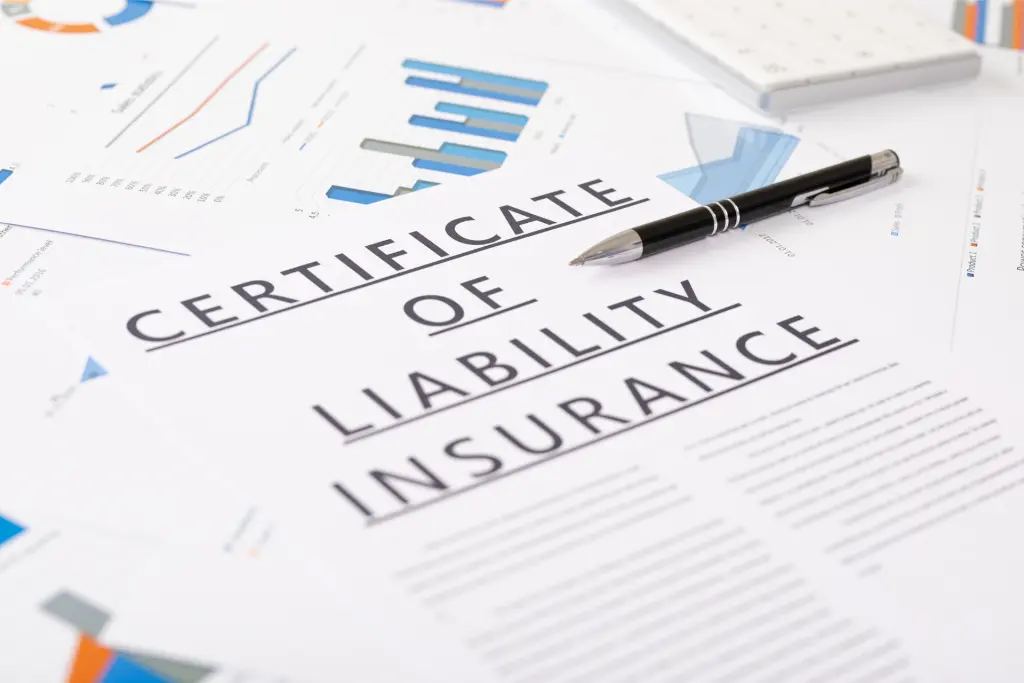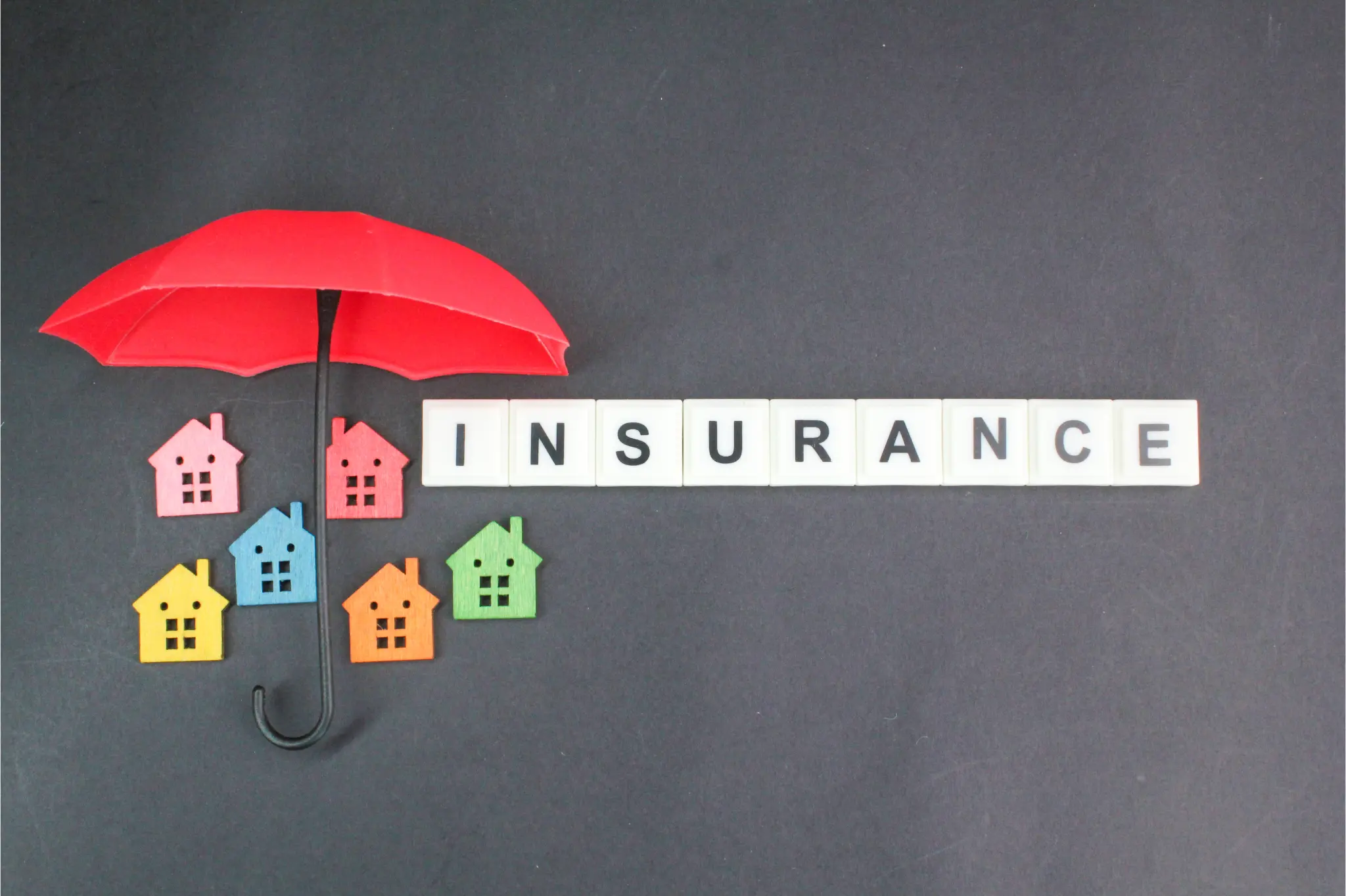Thinking of buying an investment property? More people than ever before are doing so: in such troubled economic times, many see bricks-and-mortar as a relatively safe investment. While the market fluctuates, property nearly always appreciates in value over the long term – often significantly. Whether you’re interested in buying a home to flip, as a long-term investment, or to rent out, you’ll need to insure the property. We discuss exactly why and the type of insurance you need below.
Do You Need Insurance for Your Investment Property?
In short, the answer is yes. All serious real estate investors carry the proper insurance policies to protect their investment properties.
If you’ve purchased a property with the intention of — now or in the future — renting it out or fixing it up to sell it for a profit, then having the right home insurance policy in place is vital.
Investing in real estate can be a lucrative venture, offering the potential for steady income and long-term appreciation. However, like any investment, it comes with risks that can threaten your financial stability and the value of your properties. This is where insurance policies play a critical role. For aspiring or new real estate investors, understanding the importance of comprehensive insurance coverage is essential. Insurance not only protects against common perils such as fire, theft, and natural disasters but also offers liability protection and coverage for loss of rental income. By mitigating these risks, insurance helps safeguard your investment, ensuring that unexpected events do not derail your financial goals.
In the following sections, we will delve deeper into the various types of insurance policies available, the specific protections they offer, and how to choose the right coverage for your investment properties.
Is Having Homeowners Insurance a Legal Requirement?
While homeowners insurance isn’t usually required by law, many mortgage lenders stipulate a policy must be in place as part of the contract. This means that not having homeowners insurance could put you in breach of your mortgage agreement.
For mortgage lenders, having homeowners insurance protects their own investment – i.e., the loan they’ve made you to buy the property. As well as this, should the very worst happen and your home be destroyed, you won’t be left paying a monthly mortgage for a property that no longer exists if you have home insurance.
If you’re buying an investment property to rent out – and are getting a loan on this basis — many mortgage providers will require you to have landlord insurance; we discuss this more below.
How Much Does Home Insurance Cost?
Great question. The average cost of homeowners insurance in 2024 in the US varies depending on where you live and the value of your home and surrounding property.(see average prices by state below) You’ll also have the option of obtaining additional insurance coverage where you need it. Of course, this will raise and lower the monthly price, but most insurance companies have gotten really good at policy customization. Insurance companies will give you a quote based on this data.
If you need homeowners insurance, it’s really important to check out as many different providers as possible to get the best deal. You may be surprised at just how much you can save by shopping around!
*Based on a policy with $300,000 in dwelling coverage via Policygenius
| State | Average annual cost | Average monthly cost | Difference from national average (%) |
| Alaska | $1,355 | $113 | -23% |
| Alabama | $1,940 | $162 | 11% |
| Arkansas | $2,838 | $237 | 62% |
| Arizona | $1,667 | $139 | -5% |
| California | $1,383 | $115 | -21% |
| Colorado | $2,322 | $194 | 32% |
| Connecticut | $1,329 | $111 | -24% |
| Deleware | $918 | $77 | -48% |
| Florida | $2,288 | $191 | 30% |
| Georgia | $1,950 | $163 | 11% |
| Hawaii | $486 | $41 | -72% |
| Iowa | $1,686 | $141 | -4% |
| Idaho | $1,258 | $105 | -28% |
| Illinois | $1,720 | $143 | -2% |
| Indiana | $1,668 | $139 | -5% |
| Kansas | $2,981 | $248 | 70% |
| Kentucky | $2,565 | $214 | 46% |
| Louisiana | $2,452 | $204 | 40% |
| Massachusetts | $1,275 | $106 | -27% |
| Maryland | $1,539 | $128 | -12% |
| Maine | $1,020 | $85 | -42% |
| Michigan | $1,422 | $119 | -19% |
| Minnesota | $1,829 | $152 | 4% |
| Missouri | $2,579 | $215 | 47% |
| Mississippi | $2,624 | $219 | 50% |
| Montana | $2,140 | $178 | 22% |
| North Carolina | $1,545 | $129 | -12% |
| North Dakota | $1,884 | $157 | 7% |
| Nebraska | $3,510 | $293 | 100% |
| New Hampshire | $953 | $79 | -46% |
| New Jersey | $886 | $74 | -49% |
| New Mexico | $1,681 | $140 | -4% |
| Nevada | $1,191 | $99 | -32% |
| New York | $1,114 | $93 | -36% |
| Ohio | $1,236 | $103 | -30% |
| Oklahoma | $4,161 | $347 | 137% |
| Oregon | $869 | $72 | -50% |
| Pennsylvania | $1,101 | $92 | -37% |
| Rhode Island | $1,303 | $109 | -26% |
| South Carolina | $1,653 | $138 | -6% |
| South Dakota | $311 | $26 | -82% |
| Tennessee | $2,095 | $175 | 19% |
| Texas | $2,919 | $243 | 66% |
| Utah | $894 | $75 | -49% |
| Virginia | $1,277 | $106 | -27% |
| Vermont | $865 | $72 | -51% |
| Washington | $1,159 | $97 | -34% |
| Wisconsin | $1,150 | $96 | -34% |
| West Virginia | $1,426 | $119 | -19% |
| Wyoming | $1,547 | $129 | -12% |
Types of Insurance Coverage to Match Your Investment Property Needs
Rental Property Insurance Policy
Rental property insurance, also called landlord insurance, is basically homeowners insurance for a rental property. This type of policy replaces your standard homeowners insurance policy by protecting against property damage both to the dwelling and other structures located on the lot. However, these landlord policies can offer a lot more.
With the additional risk of having tenants living in the home and protection against loss of income, you can expect the cost of landlord insurance to be around 15-20% more than homeowners insurance.
Because you are insuring a property that is not your primary residence, a rental property insurance policy typically also covers a tenant’s medical expenses should they become injured or sick due to the rentals property’s condition. These types of liability claims are often not covered in a standard homeowners policy designed for owner-occupied homes, and provide the landlord coverage .
Understanding Rental Property Insurance
Investing in rental property insurance is a wise decision for any real estate investor. It provides comprehensive protection against a variety of risks, ensuring that your investment remains secure and profitable. By understanding the typical coverages and considering additional protections based on your property’s specific needs, you can make informed decisions that safeguard your financial future.
1. Property Damage
One of the primary components of rental property insurance is coverage for property damage. This typically includes protection against a wide range of perils such as:
- Fire and smoke damage
- Storm damage (including wind, hail, and lightning)
- Vandalism and malicious mischief
- Burst pipes and water damage (excluding flooding from natural disasters)
This coverage ensures that if your property is damaged by these events, the cost of repairs or rebuilding is covered, helping you maintain the value of your investment.
2. Liability Protection
Liability protection is a crucial aspect of rental property insurance. It covers legal and medical expenses if a tenant or visitor is injured on your property and holds you responsible. For instance, if someone slips and falls on an icy walkway, liability coverage can help pay for their medical bills and any legal fees if they decide to sue. This protection can save you from potentially devastating financial losses.
3. Loss of Rental Income
If your rental property becomes uninhabitable due to a covered peril, loss of rental income coverage can reimburse you for the rental income you would have received. For example, if a fire renders your property unlivable for several months, this coverage ensures that you still receive the rental income you rely on during the repair period. This can be a financial lifeline, ensuring you can meet mortgage payments and other expenses.
4. Optional Coverages
Many insurance providers offer optional coverages that can be added to your policy for additional protection:
- Flood Insurance: Standard policies typically do not cover flood damage. If your property is in a flood-prone area, this coverage is essential.
- Earthquake Insurance: Similar to flood insurance, earthquake coverage is not included in standard policies and is crucial if you live in an area prone to seismic activity.
- Building Code Coverage: If your property needs to be rebuilt or repaired, this coverage can help pay for the costs associated with meeting current building codes and regulations, which might be more stringent than those in place when the property was originally built.
5. Coverage for Landlord’s Personal Property
If you leave personal items at the rental property for maintenance or as part of the rental (e.g., lawnmowers, appliances), rental property insurance can cover these items. This ensures that if they are damaged or stolen, you are reimbursed for their value.
Short-term Rental Insurance
As the popularity of platforms like Airbnb and Vrbo continues to rise, many real estate investors are turning to short-term rentals as a profitable venture. However, insuring a property used for short-term rentals differs significantly from insuring a traditional long-term rental. Understanding these differences is crucial for new real estate investors looking to protect their vacation rental properties effectively. This section will explore the unique aspects of short-term rental insurance and how it differs from a typical rental property policy.
1. Higher Turnover and Increased Risk
Short-term rental properties experience a higher turnover of guests compared to long-term rentals. This frequent change in occupancy increases the risk of property damage and liability issues. As a result, short-term rental insurance is specifically designed to address these heightened risks. Standard landlord insurance policies typically do not cover the unique risks associated with short-term rentals, making specialized coverage essential.
2. Coverage for Personal Property
In a short-term rental, your personal property, such as furniture, electronics, and kitchenware, is often included as part of the rental. Short-term rental insurance policies typically provide more extensive coverage for these items compared to standard rental property insurance. This ensures that if your belongings are damaged or stolen by guests, you are protected.
3. Liability Protection Tailored for Short-Term Rentals
Short-term rental insurance offers liability protection tailored to the unique risks posed by having multiple, transient guests. This includes coverage for guest injuries, property damage caused by guests, and even some legal defenses if a guest sues you. The coverage limits may also be higher due to the increased liability exposure from frequent guest turnover.
4. Business Income Coverage
Like loss of rental income coverage in traditional rental insurance, short-term rental insurance often includes business income coverage. This protects you if your property becomes uninhabitable due to a covered peril and you lose rental income. However, short-term rental insurance policies may also cover lost income due to factors specific to the short-term rental market, such as temporary bans on short-term rentals in your area.
5. Optional Coverages for Enhanced Protection
- Host Protection Insurance: Some platforms, like Airbnb, offer host protection insurance as part of their service. However, it is often limited and may not cover all potential risks. Supplementing this with a comprehensive short-term rental insurance policy ensures broader protection.
- Enhanced Liability Coverage: Given the higher liability risk with short-term rentals, consider adding umbrella liability insurance for additional coverage beyond the standard policy limits.
- Guest Medical Coverage: This optional coverage helps pay for medical expenses if a guest is injured on your property, providing peace of mind and potentially reducing the risk of lawsuits.
Umbrella Policies: Comprehensive Protection for Multiple Investment Properties
As a real estate investor with multiple properties, managing the risks associated with each individual property can become increasingly complex and costly. This is where umbrella insurance policies come into play. An umbrella policy provides an additional layer of liability protection that extends beyond the limits of your underlying insurance policies, covering multiple properties under a single policy. This section will explore the benefits of umbrella insurance for real estate investors and why it’s a smart investment for comprehensive protection.
1. Enhanced Liability Protection
One of the primary benefits of an umbrella policy is the significant increase in liability coverage. Standard insurance policies, whether they are for rental properties, short-term rentals, or fix and flip projects, have liability limits that may not be sufficient in the event of a major claim. Umbrella insurance provides additional liability coverage, often in increments of $1 million, which can protect you from substantial financial losses due to lawsuits, medical expenses, and legal fees that exceed your underlying policy limits.
2. Coverage Across Multiple Properties
Umbrella insurance covers all your properties under a single policy, simplifying your insurance management. This is particularly advantageous for investors with diverse portfolios, including residential, commercial, and short-term rental properties. By consolidating your liability coverage into one policy, you can streamline your insurance needs and ensure consistent, comprehensive protection across all your investments.
3. Protection Against Major Lawsuits
In the real estate business, lawsuits can arise from various situations, such as tenant injuries, accidents on your property, or disputes with contractors. An umbrella policy protects you from the financial devastation that can result from major lawsuits. For example, if a tenant sues you for a severe injury sustained on one of your properties and the damages awarded exceed the limits of your landlord insurance, the umbrella policy will cover the excess amount, safeguarding your personal and business assets.
4. Cost-Effective Coverage
While umbrella policies provide substantial additional coverage, they are generally cost-effective. The premium for an umbrella policy is typically much lower than increasing the liability limits on each individual property’s insurance policy. This makes it a financially prudent choice for investors looking to maximize their coverage without significantly increasing their insurance expenses.
5. Coverage for Non-Property-Related Liabilities
An umbrella policy can also extend beyond property-related liabilities, offering coverage for personal liabilities such as defamation, slander, and false arrest. This added protection is particularly beneficial for real estate investors who may have higher public profiles or engage in various business activities beyond property management.
The Benefits of Renters Insurance for Your Tenants: A Win-Win for Both Parties
As a real estate investor and landlord, ensuring your property is adequately protected with the right insurance policies is essential. However, encouraging your tenants to obtain renters insurance is equally important. Renters insurance offers numerous benefits that can protect your tenants and, indirectly, your investment. This section will explore the key advantages of renters insurance for your tenants and why promoting it can be beneficial for both parties.
1. Protection of Personal Belongings
Renters insurance primarily protects a tenant’s personal belongings against risks such as theft, fire, and water damage. While your landlord insurance covers the structure of the building, it does not cover your tenants’ personal items. With renters insurance, tenants can replace their belongings if they are damaged or stolen, ensuring their financial stability and peace of mind.
2. Liability Coverage
Accidents can happen, and if a guest is injured in your tenant’s rental unit, the tenant could be held liable for medical expenses and legal fees. Renters insurance provides liability coverage that protects tenants in these situations. This can also indirectly benefit you as a landlord by reducing the likelihood that a tenant’s guest will seek damages from you in the event of an injury.
3. Coverage for Additional Living Expenses
If your rental property becomes uninhabitable due to a covered peril, renters insurance can cover additional living expenses for your tenants. This includes the cost of temporary housing, meals, and other expenses incurred while their rental unit is being repaired. This benefit ensures that your tenants have a safety net, reducing the pressure on you to find immediate solutions for their accommodation.
4. Increased Tenant Responsibility and Care
Tenants with renters insurance tend to be more responsible and take better care of the rental property. Knowing they have invested in protecting their belongings and liabilities can make them more conscientious about maintaining the property and preventing accidents. This increased responsibility can lead to fewer damages and claims on your property insurance, ultimately saving you money and hassle.
5. Attracting and Retaining Quality Tenants
Promoting renters insurance can make your rental properties more attractive to potential tenants. Quality tenants often look for landlords who encourage responsible living and provide a safe, well-maintained environment. By advocating for renters insurance, you demonstrate your commitment to your tenants’ well-being, which can help attract and retain reliable renters who are likely to take good care of your property.
House Flipping Insurance: Coverage for Fix and Flip Investors
These policies are also often referred to as Builders Risk Insurance.
House flipping, or the process of purchasing, renovating, and selling a property for profit, has become a popular investment strategy for many real estate investors. While the potential for substantial returns is high, the risks involved can be equally significant. One of the most important steps you can take to protect your investment is securing the right insurance coverage. This section will explore the essentials of house flipping (fix and flip) insurance, highlighting its benefits and why it’s crucial for safeguarding your project.
1. Property Coverage During Renovation
Standard homeowner or landlord insurance policies typically do not cover properties undergoing significant renovations. House flipping insurance, often referred to as builder’s risk insurance, is designed to protect properties that are being renovated or constructed. This coverage includes protection against risks such as:
- Fire and smoke damage
- Vandalism and theft (including stolen building materials and equipment)
- Storm damage (including wind, hail, and lightning)
- Water damage from burst pipes or accidental discharge
This ensures that if any damage occurs during the renovation process, the cost of repairs or rebuilding is covered, protecting your investment and keeping your project on track.
2. Liability Coverage – Sometimes Not Included
Liability coverage is not usually included in these types of Builders Risk policies. If it is desired, you’ll likely have to purchase it as an add-on or as a separate policy altogether, and is available only to the owner of the property.
3. Vacancy Coverage
Flipped properties are often vacant for extended periods during renovations, which can increase the risk of vandalism, theft, and other damages. Many standard insurance policies have exclusions or limitations for vacant properties. House flipping insurance typically includes vacancy coverage, ensuring that your property is protected even when it is unoccupied. This provides peace of mind knowing that your investment is covered throughout the entire flipping process.
4. Coverage for Tools and Equipment
Renovation projects require a variety of tools and equipment, which can be expensive to replace if damaged or stolen. House flipping insurance can include coverage for tools and equipment used on-site, ensuring that you are reimbursed if they are lost or damaged. This coverage helps keep your project running smoothly without unexpected financial setbacks.
5. Optional Coverages for Enhanced Protection
- Ordinance or Law Coverage: If your property needs to be rebuilt or renovated to meet current building codes, this coverage helps pay for the additional costs associated with bringing the property up to code.
- Flood and Earthquake Insurance: Standard house flipping insurance policies typically do not cover natural disasters such as floods and earthquakes. If your property is in a high-risk area, consider adding these optional coverages for comprehensive protection.
- Business Income Coverage: If a covered loss delays your project, business income coverage can reimburse you for the loss of anticipated profits and ongoing expenses, helping you stay financially stable during the delay.

Final Thoughts
Buying an investment property could be a great move and a way of generating a regular income while building its value as an asset over time. As property represents such a significant investment, it’s vital to take out homeowners insurance, landlord insurance, or short-term rental insurance to protect this asset and give you the peace of mind. For a typically affordable monthly sum, you’ll know that your investment has the cover it needs so you can continue to enjoy reaping the rewards.








